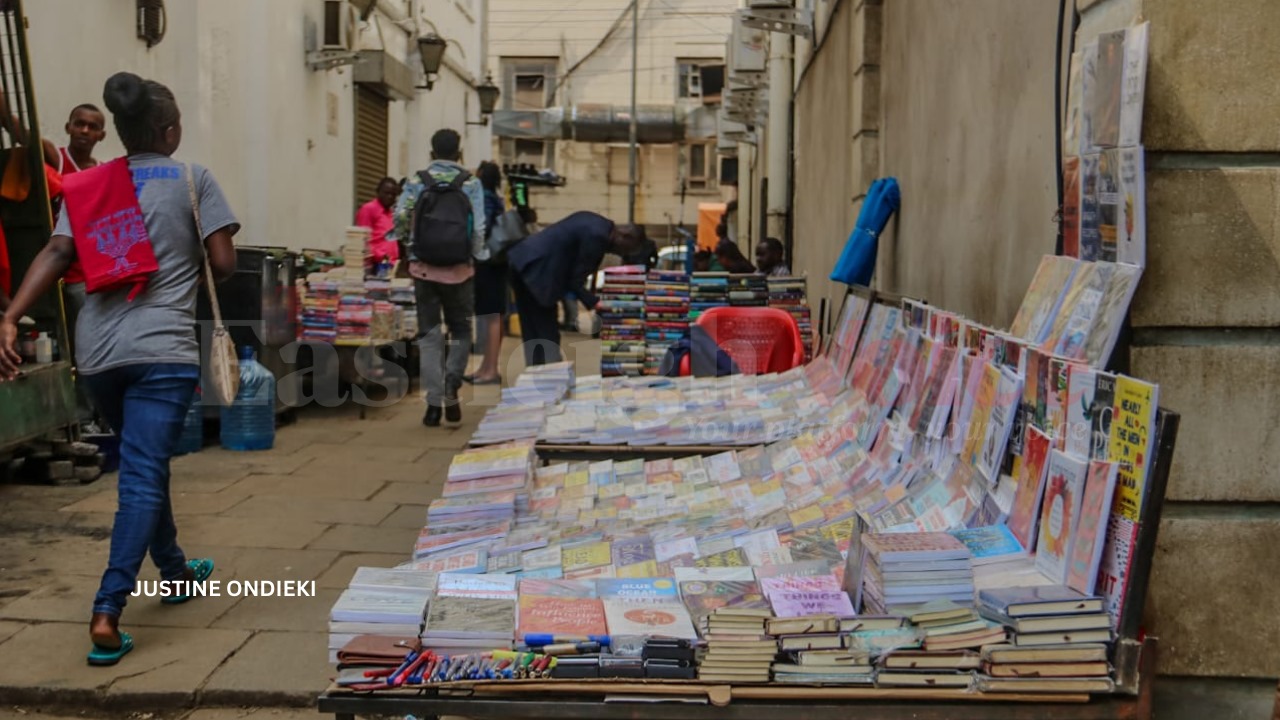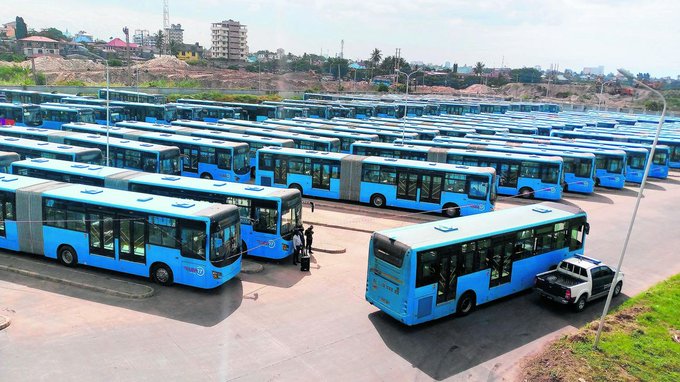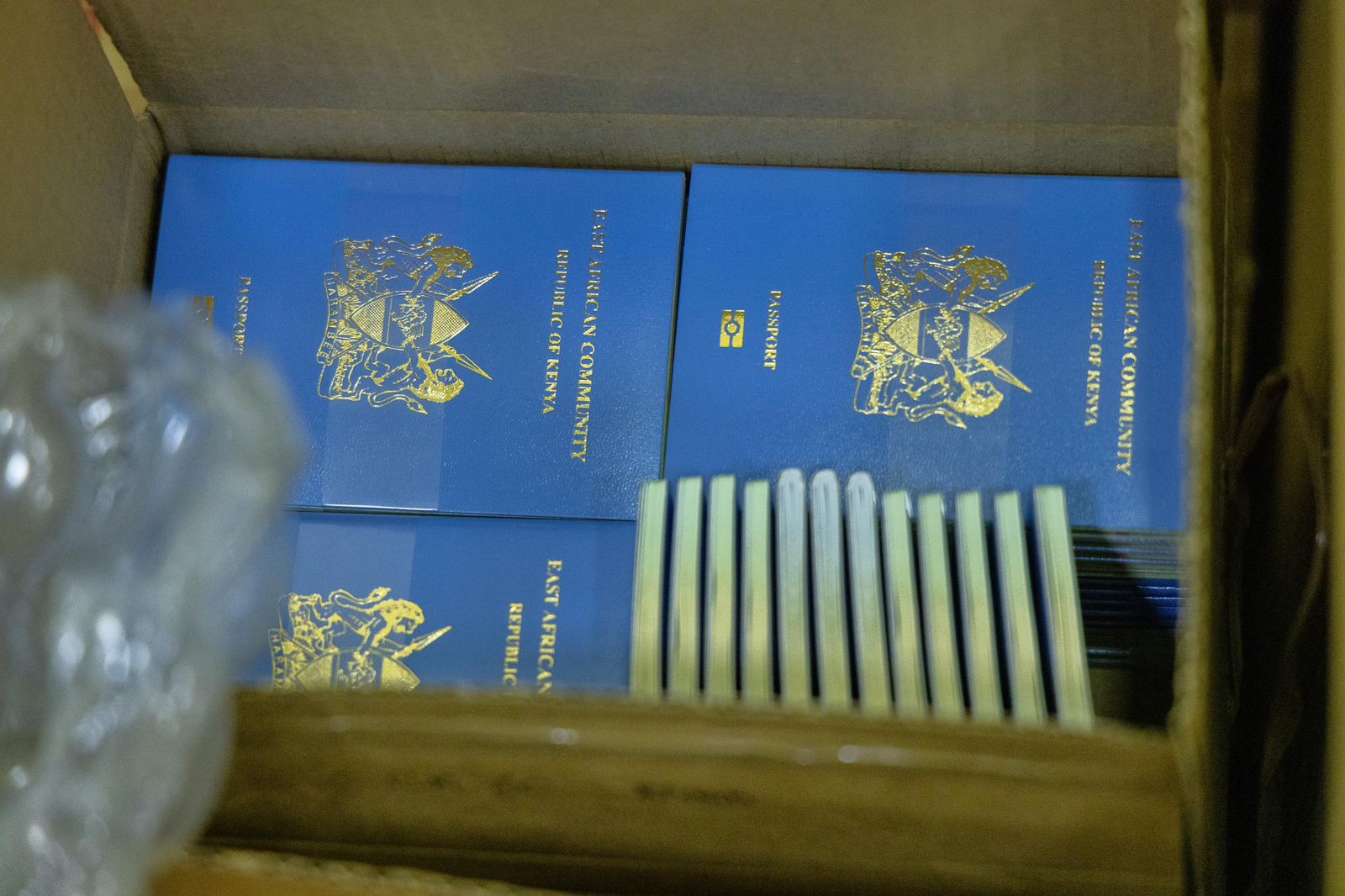Nairobi book vendors decry City Hall's backstreet relocation directive

In January 2025, the county government issued a notice banning the display of merchandise on the main streets in the Central Business District.
If Kelvin Njuguna is not dusting books to remove dust on the numerous layers of carefully arranged works of fiction, then he's reading a journal as he waits for clients.
He's stationed at an alley or backstreet along Moi Avenue within the Central Business District, where he hopes someone will take an interest in any of his books. Before his relocation to the backstreet by the Nairobi City County Government, he was stationed along Kenyatta Avenue, where he was making significant sales and had loyal clients.
More To Read
- Sakaja’s 'Dishi na County' programme under scrutiny over billions in irregular spending
- City MCA calls for streetlight policy to address growing insecurity
- Governor Sakaja’s Health CEC, Housing Chief Officer face censure over abuse of office
- MCA moves to enforce 2018 Nairobi law banning posters on poles, walls
- Former Nairobi Finance CEC tells court State House plotted to oust Sonko over anti-graft stance
- Saba Saba protests hijacked? Nairobi MCAs disown anti-government demos
"We're barely making sales at the backstreet because our customers don't feel safe coming here," said Njuguna.
The Eastleigh Voice visited several book vendors to engage them on their plight.
Njuguna has spent the last 15 years arranging his stock just so—political memoirs in one stack, romance paperbacks in another, the day's newspapers spread like fresh bread for the passersby. He knows his customers by face, sometimes by the books they last bought.
Book vendors like Njuguna know that Nairobi's main streets are more than just a sales spot. The books and magazines in the streets form part of the street culture of Nairobi.
Njuguna's books and magazines business is now threatened. A new Nairobi City County directive threatens to push him out of business by driving them to the street alleys.
They argue that this move has starved them of customers and could drive them out of town soon.
Gordon Ocholla, who sells books around Nation Centre along Kimathi Street, says the book vendors and newspaper vendors have been pushed by the county government to the backlanes in what the county says is a decongestion plan.
"It was a very unfair decision if you ask us," Ocholla says. "If you go to cities like New York, you will see book vendors along the sidewalks. Books are part of the cultural life of a vibrant city. They want us to move to backlanes, which are badly lit. Who will come to those backlanes?"
The traders argue their customers—drawn by chance encounters with a book cover or headline—are far less likely to seek them out in alleys. On the main streets, the interaction is effortless; in the backlanes, it will wither.
The traders also argue that as vendors of educational materials, they serve public interest by supporting literacy advancement, facilitating access to affordable knowledge resources and that they directly contribute to the county's education objectives and Kenya's vision 2030.
In January 2025, the county government issued a notice banning the display of merchandise on the main streets in the Central Business District. Ever since the directive was implemented, Njoroge says they have been unable to display their wares on the streets.
Although the county issued the directive, a section of the hawkers has already returned to most of the main streets. A spot check on several streets in the city centre shows the hawkers who have now occupied most of the streets.
For another trader, Joel Kimathi, who has been selling books for close to 10 years, the removal of the vendors from the main streets was carried out selectively and unfairly. He claims that although the county got them off the main streets, the streets are now occupied by photographers and other hawkers who are selling their items without interference from the county government or any other authorities.
"While the book vendors are being aggressively evicted, other informal actors such as the boda riders, the photographers and the general hawkers continue to operate with minimal interference. This is unequal treatment in contravention of Article 27 of the Constitution," Kimathi says.
The crackdown is part of the county's wider "CBD Decongestion Programme", launched in 2024 to reclaim sidewalks from hawkers, boda boda operators, and other informal traders. The initiative aims to reduce pedestrian bottlenecks, improve security, and project what officials call "a modern, orderly city centre" to investors and tourists.
But the county government is insisting that the city's decongestion plan is on, and each of the traders will be allocated a spot where they will be selling their items. While appearing before the Justice and Legal Affairs committee of the county assembly, the Chief Officer for Trade, Jane Wangui, said the county government is committed to ensuring decongestion and
"There is a programme in place, and we are in talks with the leadership of the book vendors to ensure that each of them gets a spot where they can trade easily. We acknowledge the role that the book vendors play, and within two weeks, we will hold talks to assign them a spot," Wangui told the committee chaired by Mugomoini MCA Jared Akama.
The county government set aside Sh100 million to transform Nairobi's neglected backlanes into trading spaces, promising vendors a cleaner, safer alternative to the crowded pavements. The plan envisioned neat cabro-paved walkways, proper lighting to banish the alleys' perpetual gloom, and sturdy shelters to shield traders and customers.
But years after the budget was approved, many of these backlanes tell a different story- there are half-finished works, broken cabros, flickering or absent lights, and shelters reduced to skeletal frames. Some alleys remain clogged with garbage, stagnant water, and have been converted to urinals, conditions the traders say make them not just uninhabitable, but hostile to both their trade and human dignity.
Top Stories Today














































